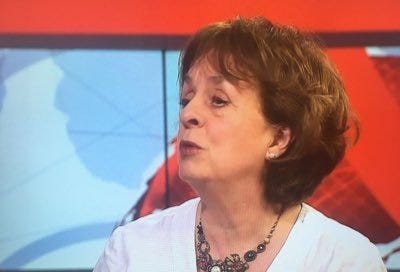I am not a lawyer. I am an historian by academic background and have spent my career in education and the voluntary sector; in my way I have tried to be a do-gooder. When I was at the Howard League we looked at lots of different ways of influencing public policy and practice and one of the most effective tools I found was to use the law. I set up a legal team within the charity to take on individual cases and to pursue systemic change through judicial review which did achieve policy change. The lawyers in the legal team and the barristers we worked with were absolutely fantastic. I met lawyers who were the cleverest minds in the country, who had total commitment to social justice, and who made real difference to the lives of individuals and to the life of the nation. That sounds rather grand, but it is true.
The legal team in the charity worked their socks off to help individual children and young adults, most of whom had had no one else to care for them or about them and who were suffering horrific abuse inside custody. The stories of young people locked up all day in cell with nothing to do, cutting themselves, with no education or hope for the future and facing destitution on release rebounded around the office. The lawyers challenged all the authorities, making themselves pretty unpopular in the process, but it didn’t matter if they forced governors and local authorities to do something.
We had three contracts that provided some legal aid to help with prison law, community care and civil cases. It all had to be supplemented with charitable funding as legal aid was never going to cover the costs.
We had a free phone line that young people could call to ask for legal advice. This was literally a life-line to many children and teenagers who had no one else to turn to and for whom the law had only been a blunt instrument of punishment, so to experience the law as a help was a totally new concept. They found that the rule of law can be on your side when you are being mistreated.
We challenged the use of prolonged solitary confinement of children, taking several years to get it right up to the European court. We challenged local authorities to make changes to the way they abandoned children who were being released from months or years in custody with nothing appropriate organised for them. We challenged mental health authorities to care for the most distressed children and young people. We succeeded in making the prison service recognise that, just like children in the community, children in custody had the same rights and merited the same protections.
Working out how to do this required intellect and imagination, exploring new ways of using legal rights to do what was the right thing.
The in-house team was special and so were the barristers we worked with, many of them working for nothing to advise and help. Goodness, the discussions we had about using the law would have done credit to the perennial question asking: what is justice? We would have done Socrates proud. The lead lawyer (I won’t name her, but she knows who she is) was one of the cleverest people I have ever met. The barristers who took on our cases were subtle, earnest, hard working and usually successful.
In praise of lawyers!
Subscribe to Frances’s Newsletter
Politics and stuff







And in praise of you too Frances for having the strength and tenacity to get the show moving.